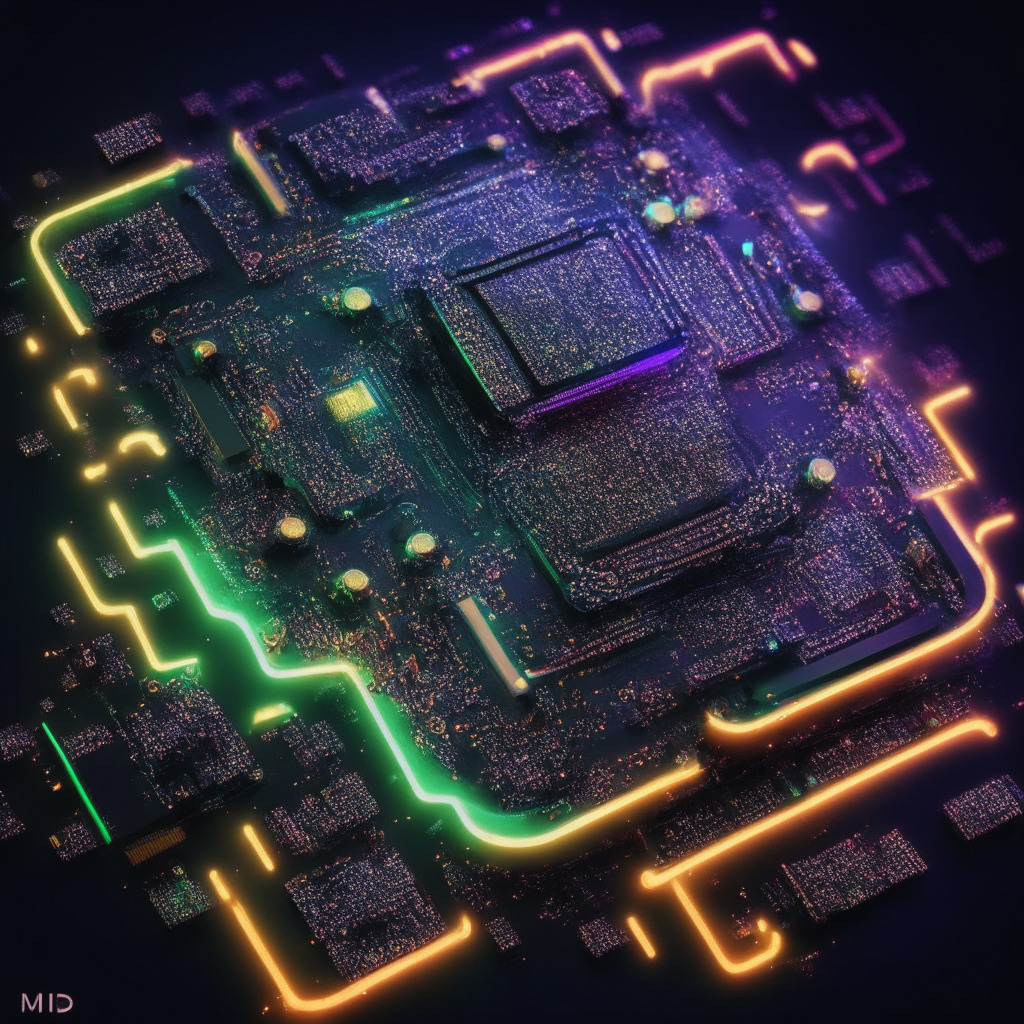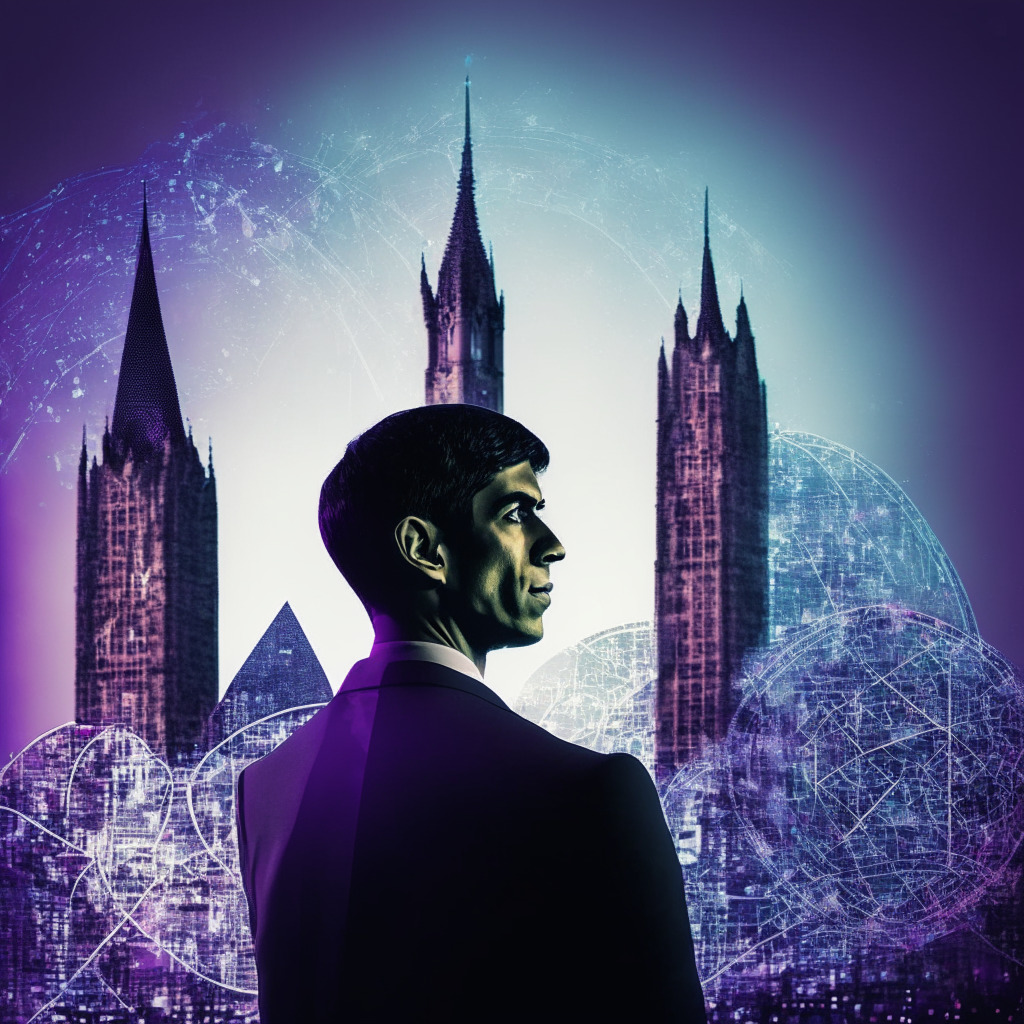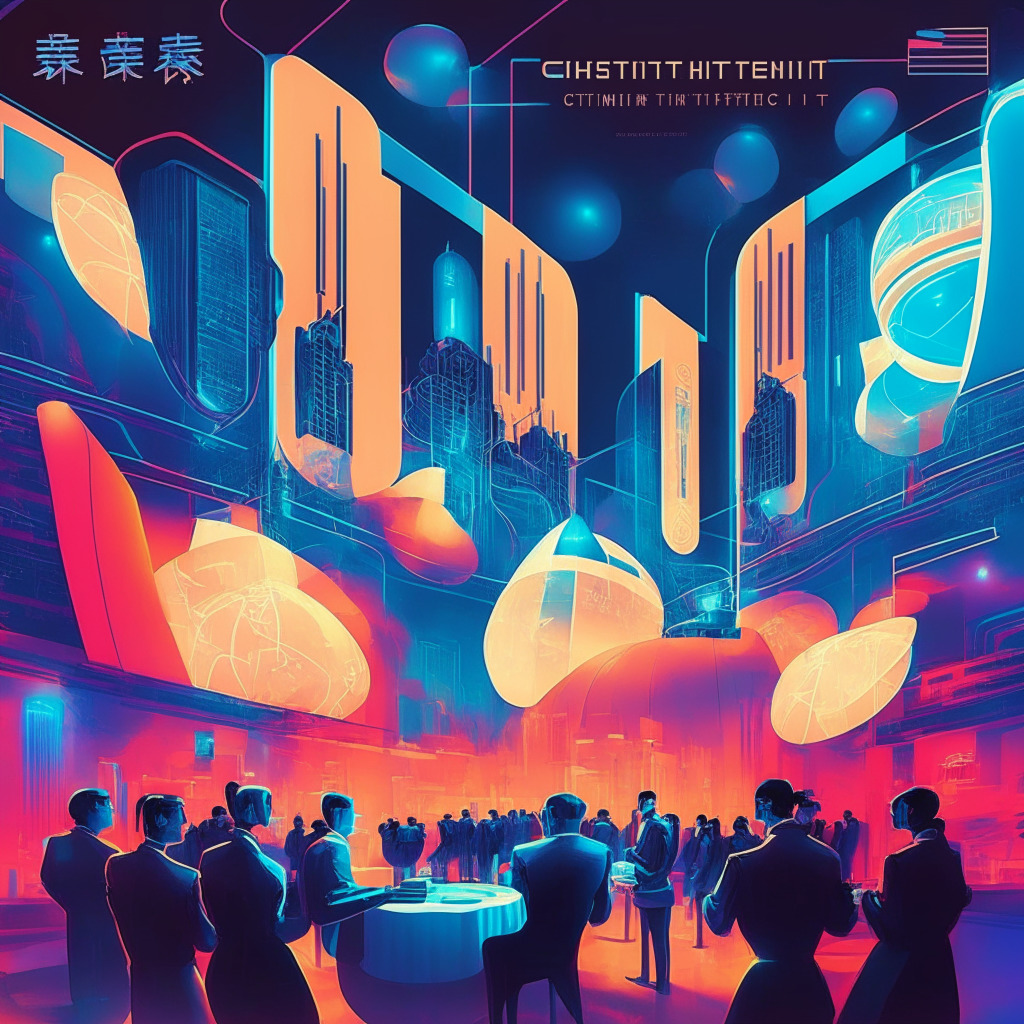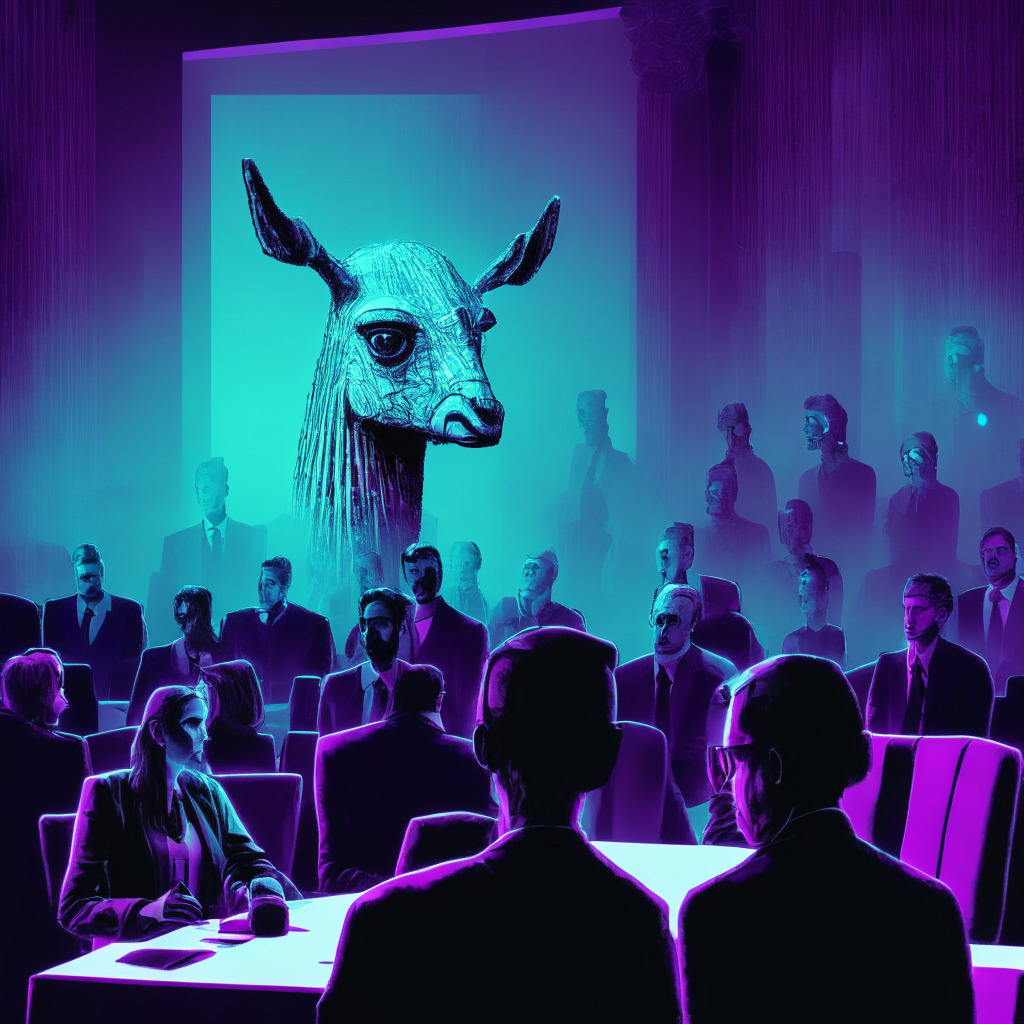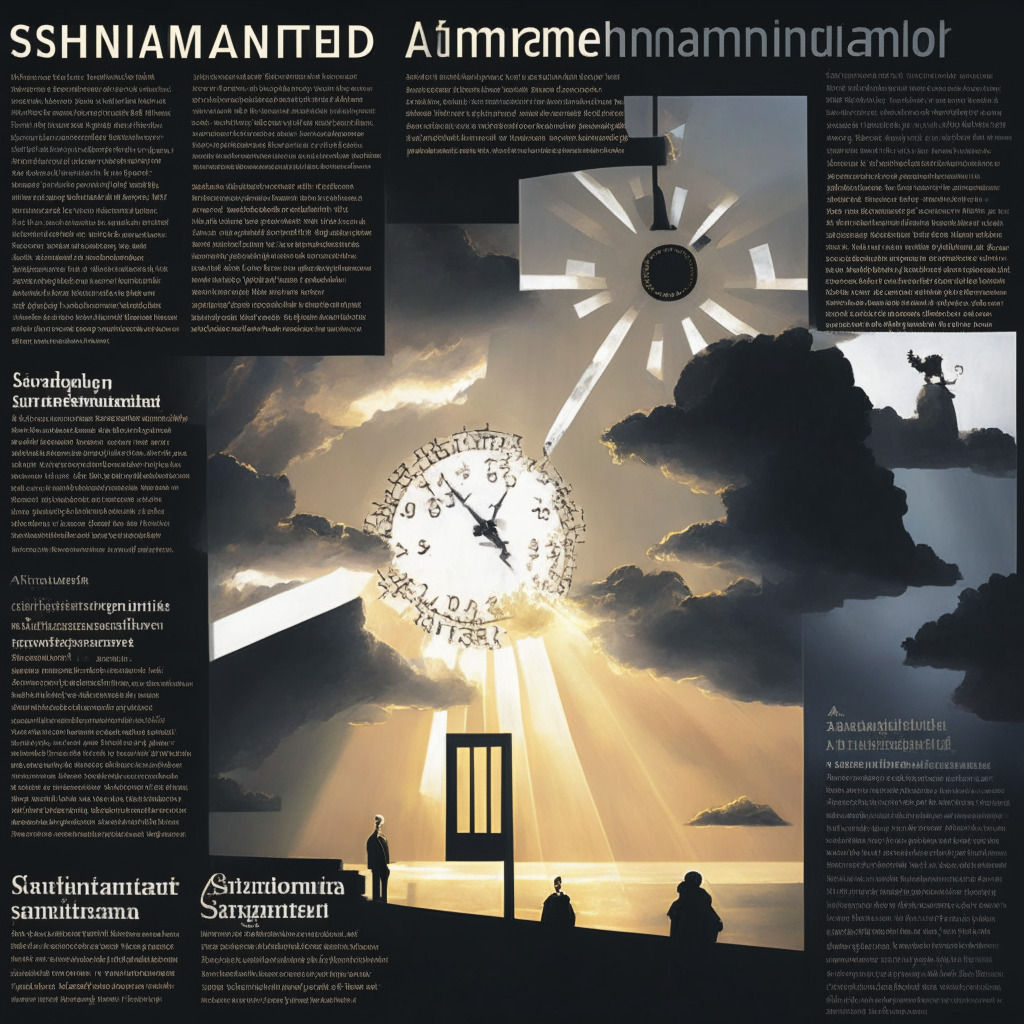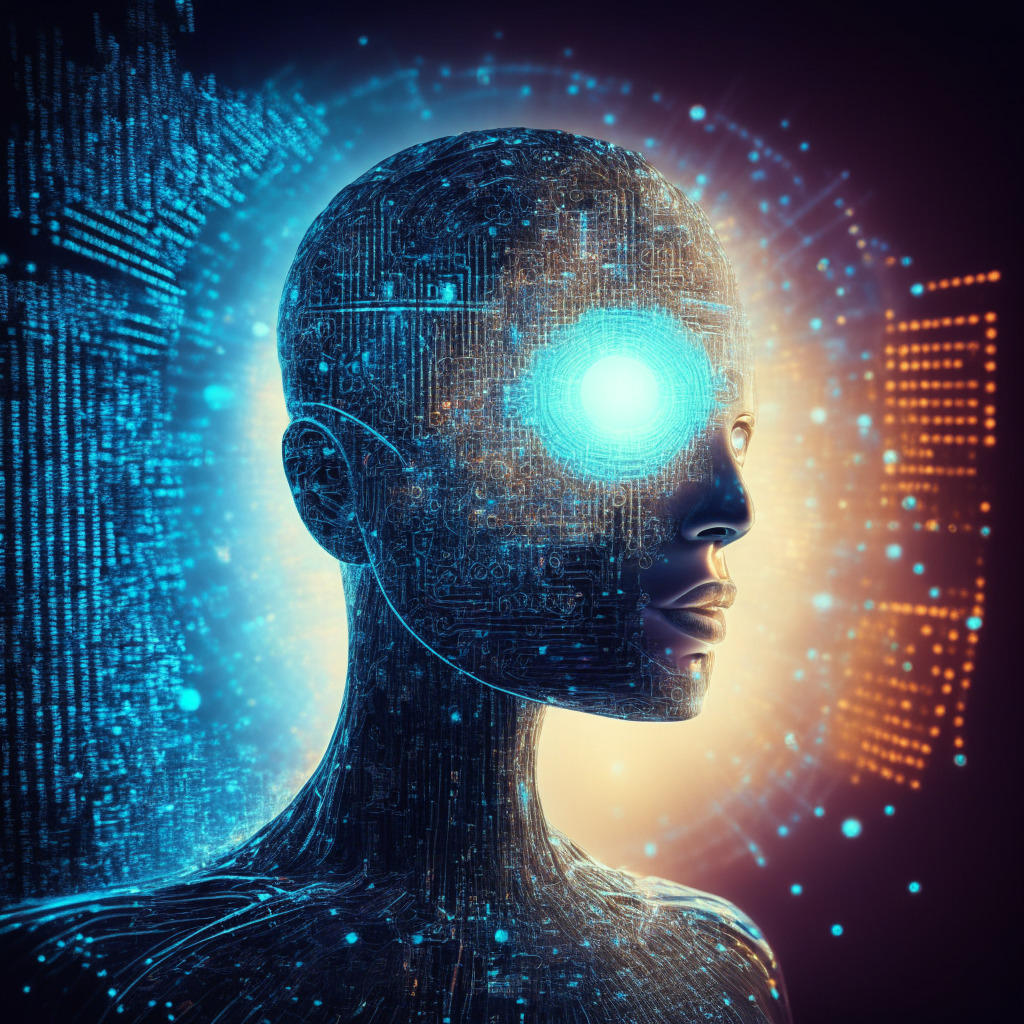Explore seven ChatGPT alternatives, including Google Bard, Bing AI, ChatSonic, You.com, Jasper AI, Perplexity AI, and GitHub Copilot, each offering unique features for different natural language processing tasks. Catering to diverse user needs, find the best AI-driven tool to suit your requirements.
Search Results for: OpenAI
Exploring Blockchain with AlchemyAI: A Game Changer or Just Another Tool?
Alchemy, a prominent blockchain platform developer, announces the launch of AlchemyAI, a GPT-4 plugin for blockchain analysis. This tool transforms natural language inputs into specific blockchain queries, enhancing user experience and understanding. However, users are advised to exercise caution and fact-check provided information due to AI limitations.
Regulating AI: Balancing Innovation with Generative Dangers and Global Cooperation
UN Secretary-General António Guterres joins the call for AI regulation, comparing its potential threat to humanity to nuclear war. European Parliament passes world’s first-ever AI legislation, while OpenAI CEO Sam Altman supports regulating AI through establishing a government office and standards for development.
EU AI Act: Balancing Innovation and Ethics in Artificial Intelligence Regulation
The European Parliament recently passed the EU AI Act, aiming to promote human-centric and trustworthy AI while protecting health, safety, and fundamental rights. The act restricts certain AI services and products, including biometric surveillance and predictive policing, while allowing generative AI models like OpenAI’s ChatGPT and Google’s Bard, provided they are clearly labeled. The challenge lies in balancing innovation and safety in AI development.
AlchemyAI: Accelerating Web3 Development with AI or Oversimplifying the Process?
Alchemy unveils AlchemyAI, an innovative suite of AI-empowered tools to accelerate web3 product development. Flagship products ChatWeb3 and Alchemy ChatGPT Plugin leverage large language models, facilitating efficient software development and enabling real-time blockchain information access via natural language processing. This could democratise web3 development while fostering a more inclusive and efficient blockchain technology future.
AMD’s MI300X Chip vs. Nvidia’s AI Dominance: Can It Transform the Market?
AMD unveils its MI300X AI chip designed for large language models and advanced AI, challenging market leader Nvidia’s 80% market share. With a maximum memory capacity of 192GB, it aims to increase AMD’s market share and foster innovation in the AI chip market.
Damus vs Apple: Clash Over Crypto Tipping and the Future of Decentralized Apps
Decentralized social networking app Damus faces a challenge as Apple warns to bring its Bitcoin tipping feature “zaps” into compliance or risk removal from the App Store. This situation highlights the growing tension between traditional tech giants and decentralized applications, potentially shaping the regulatory landscape of the cryptocurrency world.
UK Secures Early Access to AI Models: Impact on Global Tech Race and Crypto Regulations
The UK is set to receive early access to AI models from Google DeepMind, OpenAI, and Anthropic, as announced by British Prime Minister Rishi Sunak. This move aims to foster cutting-edge safety research, promote global alliance, and invest in AI and quantum technologies, potentially providing the UK with a competitive edge in AI innovation.
Rise of AI vs Crypto Regulation: Balancing Innovation, Growth, and Consumer Protection
The US SEC targets crypto businesses amid discussions on AI regulation, with recent lawsuits against Coinbase and Binance. As industry leaders debate balancing innovation, growth, and consumer protection, establishing thoughtful regulatory frameworks for both AI and digital assets remains a challenge.
Indian AI Startups Challenging the Giants: Hopeless or a Path to Innovation?
OpenAI CEO Sam Altman’s comment, seemingly dismissing Indian startups’ ability to compete with American AI companies, sparked debate among local business leaders. However, Altman later clarified his statement and expressed confidence in Indian startups’ potential to contribute significantly to the world of AI and technology.
China’s Role in AI Regulation: Balancing Innovation and Global Security Concerns
OpenAI CEO Sam Altman emphasizes the importance of including China in shaping AI regulations due to its wealth of AI talent. Amid growing national security concerns, international collaboration is crucial for addressing challenges posed by AI advancements, ensuring safety and fostering technological innovation.
Crypto Twitter Hacks: Lessons in Security and The Fight Against Scammers
Scammers hijacked eight prominent crypto-related Twitter accounts, stealing nearly $1 million worth of cryptocurrency through SIM Swap attacks and potentially a Twitter admin panel. This highlights the need for stronger security measures on social media platforms and increased education and awareness within the crypto community to prevent such scams.
Pink Drainer Hacks: A Wake-Up Call for Crypto Security and the Future of Blockchain
Hacker “Pink Drainer” has reportedly stolen over $3 million from nearly 2000 victims using social engineering tactics and fake journalist personas. Despite a decrease in overall hacking incidents, it’s crucial for individuals to evaluate security measures and exercise caution in the crypto space.
Balancing AI Advancement: Unhindered Progress vs. Safe Development and Regulation
Marc Andreessen advocates for competition and open-source AI accessibility, while emphasizing collaboration between governments and the private sector to address AI’s potential risks. Balancing rapid development with judicious use and regulation is critical for AI’s future advancements.
AliExpress NFT Mystery, Binance Lawsuit & Hong Kong’s Web3 Boom: Crypto’s Mixed Landscape
AliExpress partnered with Web3 developer The Moment3! for shopping-themed NFTs, but the announcement was deleted shortly after, raising concerns about NFTs’ future in China. Meanwhile, Hong Kong shows increasing demand for Web3 professionals, with pro-Web3 regulations attracting attention.
Detecting AI-Generated Academic Writing: A Race for Authenticity and New Detection Methods
Researchers at the University of Kansas have developed a method to identify AI-generated academic science writing with over 99% accuracy, addressing the growing need to differentiate between human and AI-generated writing in higher education and scholarly works. This arms race between AI advancements and detection methods requires academics, educators, and students to remain vigilant.
Navigating AI’s Promising Future Amidst Deepfakes, Job Loss, and Singularity Risks
AI’s rapid advancement brings potential risks such as deepfakes, privacy invasion, job loss concerns, technological fallacy, financial market volatility, and the Singularity concept with ethical questions. Society must address these challenges to ensure a safe, responsible future.
AI vs. Actors: SAG-AFTRA Strikes, Demanding Fair Play in the Age of Generative AI
The Screen Actor Guild (SAG) is focusing on generative AI’s impact on the entertainment industry, emphasizing the need for clear boundaries concerning individuals’ images, informed consent, and fair compensation. SAG-AFTRA’s national executive director advocates a human-centered approach to AI implementation, balancing technology’s incorporation while respecting performers’ rights and livelihoods.
Bankrupt FTX’s Anthropic Stake Sale: Navigating the Future of AI and Crypto Exchange Loss Recovery
The now-defunct cryptocurrency exchange FTX is looking to offload its stake in AI startup Anthropic, following bankruptcy. Anthropic, valued at $4.6 billion, is developing a general-purpose AI chatbot called Claude. The potential sale’s outcome may impact former FTX customers and stakeholders.
AI-Designed Flat-Pack Sofa: Innovation vs. AGI Concerns in Furniture’s Future
The AI-designed, limited-edition flat-pack sofa by Space10 and Panter&Tourron revolutionizes furniture design, showcasing innovative, sustainable solutions. However, concerns about advanced AI systems like artificial general intelligence (AGI) demand proper regulation and striking a balance between technological advancement and precautionary measures.
Meta’s Controversial Release of LLaMA AI: Examining Security Risks and Ethical Implications
U.S. Senators Blumenthal and Hawley criticize Meta’s “unrestrained and permissive” release of AI model LLaMA, fearing its potential misuse in cybercrime and harmful content generation. They question Mark Zuckerberg about risk assessments and mitigation efforts prior to LLaMA’s release, emphasizing the importance of responsible AI development and oversight.
AI in TV Writing: Creative Breakthrough or High-Tech Plagiarism? Pros, Cons, & Conflict
OpenAI’s ChatGPT generated a summary of existing “Black Mirror” episodes instead of a new plot, disappointing creator Charlie Brooker. As generative AI potentially impacts human writers, concerns about replacing writers and high-tech plagiarism arise, fueling debate in the entertainment industry.
Zoom’s AI Leap: Real-Time Analysis to Outpace Productivity Tool Competitors
Zoom has introduced AI features, such as Meeting Summary and Team Chat Compose, in partnership with OpenAI and Anthropic, enhancing user experience in virtual meetings. Offering real-time analysis and customizable AI models, Zoom aims to compete with other AI-driven productivity platforms amidst a rapidly changing digital landscape.
FTX Considers Offloading $500M Anthropic Stake: AI’s Pros, Cons, and the Future of Investments
FTX is reportedly considering offloading its $500 million stake in generative AI start-up Anthropic amid financial troubles. The rapidly growing technology faces challenges like AI “hallucinations” generating false information, raising concerns and causing uncertainty in investments.
ChatGPT: Revolutionizing Our Digital World or Manipulating Human Interaction?
OpenAI’s ChatGPT, developed using reinforcement learning from human feedback, offers extensive applications like intuitive search engines, creative content generation, education, and translation. Despite its potential, concerns about AI’s influence on human users warrant careful assessment of its implications.
Two-Year Countdown to Regulate AI: Risks, Challenges, and the Race for Global Control
AI task force advisor, Matt Clifford, warns that humanity has about two years to regulate and control AI before it becomes too powerful, posing existential risks. He suggests focusing on understanding AI models and implementing global regulations, emphasizing the importance of addressing potential dangers and harnessing AI’s potential responsibly.
AI Developer Regulation Debate: Balancing Innovation and Safety Risks
The lack of regulation of AI development concerns Labour Party’s digital spokesperson, Lucy Powell, who calls for licensing and regulating AI like pharmaceutical, medical, or nuclear industries. As AI becomes more powerful, proper regulation and safety measures are essential to minimize risks and maximize benefits of this rapidly evolving technology.
AI Regulation Debate: Licensing Model Pros, Cons, and Balancing Innovation with Safety
UK officials propose licensing AI technology, similar to pharmaceutical or nuclear power companies, to regulate AI at the developmental level. The approach aims to address concerns about bias, discrimination, surveillance, and potential risks associated with AI technology.
AI vs. Human Governance: Debating Regulatory Efforts and Crypto Restrictions Worldwide
AI experts sign an open statement highlighting the need for mitigating extinction risks from AI, as global regulatory efforts increase. Binance restricts privacy tokens trading in four European countries, while the MiCA cryptocurrency regulatory framework is signed into law.
Rising Extortion Threats: Deepfakes Targeting Minors and Crypto Investors
The FBI warns that criminals use deepfakes for extortion, targeting victims by altering their photos or videos into explicit content. The increasing difficulty in identifying fraudulent content due to advanced AI technology highlights the importance of exercising caution and protecting personal information online.
ChatGPT Revolutionizes Crypto Risk Management: Pros, Cons, and Main Conflicts
Elliptic plans to integrate ChatGPT into off-chain intelligence and research gathering efforts, boosting efficiency in data organization, fraud detection, and security. This AI chatbot may revolutionize risk detection and user experience in the crypto ecosystem, but vigilance and ongoing research are necessary to maintain security and integrity.
EU Push for AI Transparency: Balancing Trust and Creativity in the Age of ChatGPT
EU officials are considering measures to make AI tools like OpenAI’s ChatGPT more transparent, addressing concerns over the spread of disinformation. Labeling AI-generated content could help users judge credibility but may raise concerns about freedom of expression and stifling creativity.





